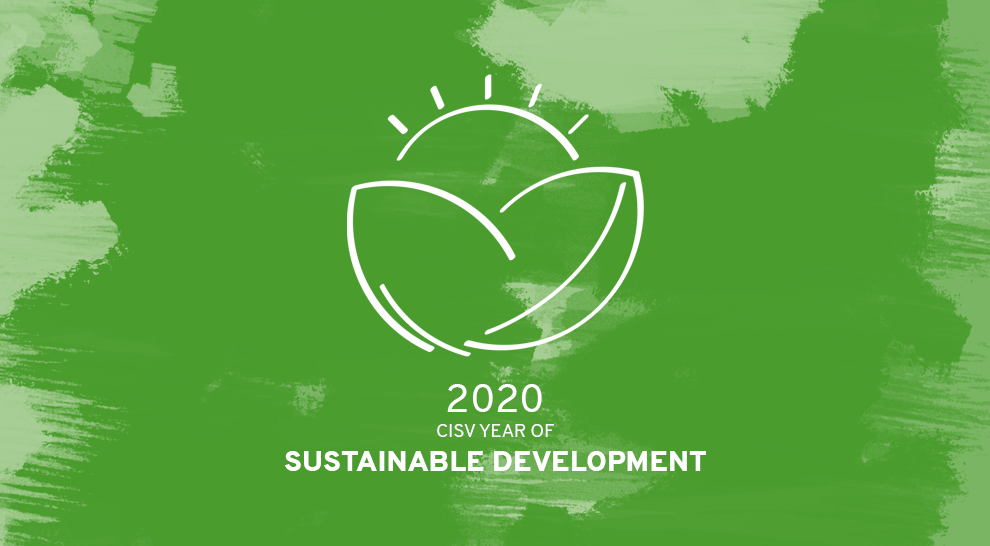Dig In: Introducing Sustainable Development through Activities
What is Sustainable Development?
April 25, 2016Digging Deeper with Dig In
May 9, 2016Dig In: Introducing Sustainable Development through Activities
2016 is CISV’s year for Sustainable Development. Throughout the year, we will bring you ideas, discussion pieces, materials and resources to help you to explore, educate on, and take action toward Sustainable Development in your Chapter or Programme.
Sustainable development is the broadest of CISVs four content areas. In truth, Human Rights, Diversity and Conflict and Resolution could all fit under the large umbrella of Sustainable Development, although the approach to each theme could differ depending on what values, tools and ideas you bring with you.
Having such a diverse topic allows us to talk and educate about a whole lot of things, but at the same time also poses challenges. How do we make sure we’re all on the same page? How do we address the issues of differing understanding of sustainability, of development and the many different definitions? Our foremost challenge however is undoubtedly how to ensure our activities, programmes and education represent and communicate the spectrum of topics that make up the Sustainable Development content area.
With these challenges in mind the International Junior Branch’s project Dig In planned the first out of six scheduled educational activities to be released during 2016. Dig In, like its predecessors Right On, Branch Out and Stand Up, is a series of activities created by an international working group made up of JBers from ten different countries. We believe having preplanned activities makes it easier to run high quality educational content not only in local Junior Branches (JBs) and CISV, but can also be used to reach outside of CISV.
In the first activity we aim to introduce the participants to core concepts of Sustainable Development and the UN’s Sustainable Development Goals. We challenge participants’ understanding of sustainability, letting them use the concept to understand and analyze a problem in our world. To wrap the activity up we look at the Sustainable Development Goals and ask ourselves whether these represent the full spectrum, and whether the achievement of these goals would be enough for human life on our planet to be sustainable.
This first activity was released in mid-February and has been run in Lebanon, Sweden, Costa Rica, Spain and at the Neighbourhood Weekend NICE Weekend in Finland. Through taking pictures and sending these to our Dig In email, we can spread the word of the project on social media and contribute to CISVers’ feeling of being part of a global movement.
We will release the second activity soon. Make sure to run the first step in your local Chapter and get ready to move from an introduction of sustainability and dive deeply into social sustainability in step #2!
Yours,
Anton Ruus
Educational Content Specialist & Dig In Project Coordinator
On behalf of the Sustainable Development Team*
*The Sustainable Development Team includes members of CISV’s Educational Programmes Committee, Kompaz Project, International Junior Branch Team, Communications Team, and the International Office. Our team coordinator is Madeleine Le Bourdon.



